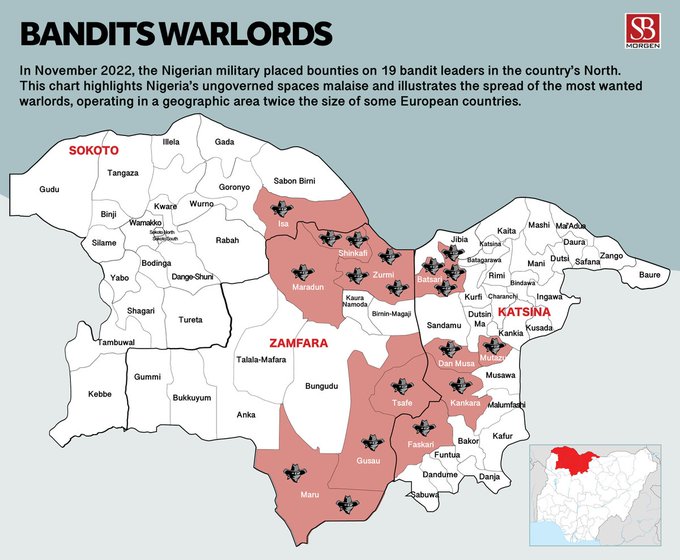To an outsider, it would seem that Nigeria is a made-up story, and to many in Nigeria, this would be a plausible explanation. Ten years ago today, 276 girls were abducted in Chibok, a town in Borno State, Northeastern Nigeria. Not only have the Chibok girls become accidental icons that have shaped policies and upended politics but they linger in our minds as signposts of the insecurity and instability that has rocked our nation.
The abduction spree in Nigeria has devolved into what can now be described as a lucrative kidnap and ransom business model in Nigeria, such that it is reckoned with and prepared for by citizens. This scheme now operates with clinical precision involving serial abductions and steep ransom demands from the kidnappers, Recently, it was reported that the assailants who kidnapped nearly 300 staff and students demanded a total of N1 billion for their release.

Since the Chibok girls kidnapping in 2014, over 1300 children have been abducted in Nigeria and in terms of mass abductions, the nation has witnessed over 735 cases since 2019. Mass kidnappings have become a defining theme in Nigeria with citizens, corporations and civil society organisations slowly adjusting to what can now be defined as a new normal.
Truly, with the insulation of citizens from these incidents and the fast-paced adaptation that is sweeping public discourse, one would not be wrong to ask, is Nigeria fiction? Or an alternate reality?
Looking at the pervading fear of insecurity and its disappearance in public discourse, the government as the primary custodian of Nigeria’s security must reclaim its standing from elements challenging its sovereignty, stability, and existence.
The first step to correcting the anomaly of mass abductions in Nigeria lies in improving Nigeria’s security architecture. A general rule in political philosophy is that the state must have a monopoly on violence. This means that the state is the only entity with a legitimate right to use physical force within its territory. This rule is upheld as a standard category for a state and if a country fails in this aspect there is a break out of anarchy.
To secure Nigeria, security measures must be localized and translated across the board. The clamour for state and community-based policing initiatives is relevant and can serve as a necessary intervention in combatting insurgency. There is also a need to increase security options in terms of surveillance, deployment of personnel, increasing patrols and checkpoints and utilising technology.
Particularly, the armed forces must be reinforced with adequate equipment and ammunition for the task. This would require procuring ammunition and regulating arms smuggling in the nation.
Wars are not won in isolation and the existence of guerilla tactics also proves that wars are not won solely by numbers. Curbing insurgency requires improved information gathering and intelligence analysis. Identifying networks, monitoring channels and tracking the movements of terrorists and kidnappers must be prioritised. Perhaps one of Nigeria’s flaws in the war against insurgency has been relying on sheer military might and neglect of strategies and channels where these activities are carried out.
Equally, security agencies, local stakeholders and communities must collaborate actively in addressing kidnappings. Adequate preparation strategies and surveillance of areas of interest must be looked into as well.
Providing victim support services and raising awareness of kidnappings are also proactive responses. Given the prevalence of mass abductions, sensitisation, and orientation programs should be held for communities on ways to identify, protect against and report suspicious activities in their environments.
Ultimately, these measures only serve as “stop-gap” initiatives and will not solve the problem of terrorism and kidnapping in its entirety. Underlying issues such as poverty, unemployment and other socio-economic factors must be addressed. Mediation and amelioration programs must also be encouraged to provide solutions. Central issues such as political corruption, government incompetence and weak legal reforms must also be addressed, to nip this monster in.


